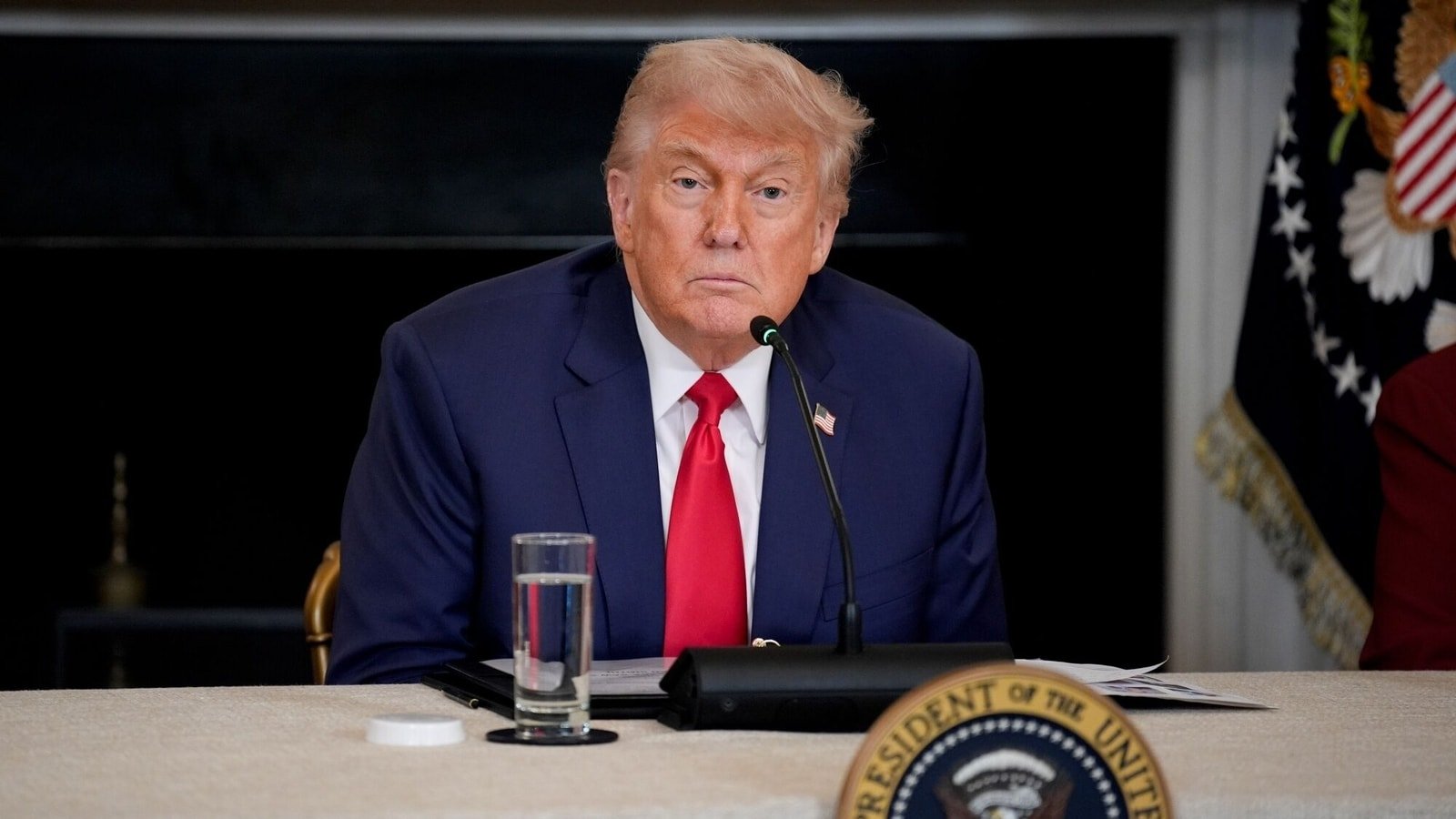Travel Guides & Articles
Donald Trump to impose travel restrictions on 36 countries? Here’s what we know

The Trump administration is contemplating about adding travel restrictions for 36 more countries. Some of them are close US partners, like Egypt and Djibouti. This is based on an internal memo reviewed by The Washington Post.
The memo was signed by Secretary of State Marco Rubio and sent to US diplomats on Saturday. It says the listed countries have 60 days to follow new rules set by the State Department.
The State Department said some of the countries have failed to meet certain standards, like having “no competent or cooperative central government authority” to give out trusted identity documents. Others have “a large number of citizens who have violated the terms of their visas.” The memo adds that if a country agrees to take back third-country nationals being deported from the US, it may help ease other concerns.
These countries face possible US travel restriction
The countries facing possible visa limits, travel bans, or other steps include 25 in Africa: Angola, Benin, Burkina Faso, Cabo Verde, Cameroon, Côte d’Ivoire, Democratic Republic of the Congo, Djibouti, Ethiopia, Egypt, Gabon, Gambia, Ghana, Liberia, Malawi, Mauritania, Niger, Nigeria, Sao Tome and Principe, Senegal, South Sudan, Tanzania, Uganda, Zambia, and Zimbabwe.
Caribbean countries on the list are: Antigua and Barbuda, Dominica, Saint Kitts and Nevis, and Saint Lucia.
The memo also names four countries in Asia: Bhutan, Cambodia, Kyrgyzstan, and Syria. And three in Oceania: Tonga, Tuvalu, and Vanuatu.
These countries have until 8 a.m. Wednesday to send the State Department a first plan on how they will meet the new rules.
A State Department spokesperson would not talk about the memo but said the department is always “reevaluating policies to ensure Americans are safe and foreign nationals abide by the law.” It is still not clear if the new travel limits will begin after the deadline.
Also Read: Donald Trump warns Iran: ‘Full might of US military will come down on you if…’
A look at Trump’s first travel ban
This memo comes one week after Trump brought back his first-term travel ban. That order blocks entry from 12 countries and limits travel from 7 others. In January, Trump signed another order asking the State Department to list countries “for which vetting and screening information is so deficient as to warrant a partial or full suspension” on their citizens.
These moves are part of Trump’s larger immigration plan, including what he called the “largest mass deportation operation” in U.S. history. His plan also includes canceling visas and ending protections for tens of thousands of immigrants.
Travel Guides & Articles
Tharoor calls for targeted campaigns beyond ‘Incredible India’ to boost tourism

Calling for a more nuanced and diversified promotional strategy, Dr Shashi Tharoor, Member of Parliament, has urged India’s tourism sector to move beyond the singular “Incredible India” campaign and adopt a more segmented approach to marketing the country’s vast and varied offerings. He emphasised the need to highlight niche sectors such as wildlife, beaches, heritage, and culture, arguing that a one-size-fits-all campaign is insufficient to reflect India’s diversity. “One ‘Incredible India’ campaign is not enough,” Tharoor said. “We need to showcase the many different aspects of India that exist within our borders.”
Speaking at the Skål India National Congress 2025 in Mumbai, he also pointed to the glaring absence of Chinese tourists in the country, despite their growing presence in global tourism. “The Chinese are travelling across the world except India. Let’s bring some Chinese money into our country,” he remarked.
Adding a touch of humour to his address, Tharoor quipped, “Perhaps we could even attract some British tourists for a colonial heritage tour—though there aren’t many monuments left; they took more than they left.”
His remarks added both insight and levity to a serious discussion on revitalising Indian tourism, offering clear and actionable ideas to industry leaders and policymakers alike.
Tharoor also called for urgent structural reforms in the tourism sector, highlighting the need to enhance women’s safety and strengthen hospitality infrastructure across the board. “Our nation carries the perception that India is not safe for women. We must change this image. It’s time for action. Increasing the presence of women police officers in tourist areas would be a step in the right direction,” he stated.
He emphasised tourism’s role as a key driver of economic growth, citing its potential to create employment and generate significant revenue. “We have a lot to do. Tourism is a vital sector—it generates jobs and enhances government income. Infrastructure development must be prioritised.”
Pointing to gaps in the current hospitality ecosystem, he added, “We either have high-end five-star hotels or substandard facilities—there’s virtually nothing in the middle. We need to build a lot more to fill this gap.”
Tharoor’s address reflected a mix of strategic insight and wit, resonating with tourism professionals, investors, and policymakers seeking to position India as a more attractive and accessible global destination.
Travel Guides & Articles
Where to Shop for Jewelry in Jaipur, India

From left: Courtesy of Santi; Abhishek Bali
Jaipur has long seduced travelers with its warren of old bazaars, royal palaces, and glittering treasures. But behind one of the city’s pink façades lies a rarer find: Royal Gems & Arts, a jewelry business housed inside Saras Sadan, an 18th-century haveli, or mansion, a short walk from the iconic Hawa Mahal palace.
Run by ninth-generation jeweler Santi Choudhary with his wife, Shobha, and son, Krishna, the atelier feels like a museum and is open by appointment only. The Choudharys, descendants of the city’s founding families, supply exquisite pieces to royalty and collectors around the world.
Today, Santi oversees a trove of Mughal- and Rajput-inspired pieces, some of which have been loaned to the world’s top museums. Krishna joined the family business while studying Islamic and Indian art in London. In 2019, he started his own label, Santi, with an atelier in London’s Mayfair district showcasing bold, contemporary designs with rare stones set in gold, titanium, or platinum.
Together, the Choudharys’ shops offer a glimpse into India’s past and present—one rooted in Jaipur’s traditions, the other reinterpreting them for a new generation. While the haveli in Jaipur focuses on heritage designs, Santi in London crafts one-of-a-kind pieces, like a rare 18th-century, pyramid-shaped Colombian emerald set in 18-karat white gold with reverse-set diamonds. “Every antique stone we work with brings a mystery with it, and we add something to it for the future,” Krishna says.
Courtesy of Santi
Run by ninth-generation jeweler Santi Choudhary with his wife, Shobha, and son, Krishna, the atelier feels like a museum and is open by appointment only. The Choudharys, descendants of the city’s founding families, supply exquisite pieces to royalty and collectors around the world.
Today, Santi oversees a trove of Mughal- and Rajput-inspired pieces, some of which have been loaned to the world’s top museums. Krishna joined the family business while studying Islamic and Indian art in London. In 2019, he started his own label, Santi, with an atelier in London’s Mayfair district showcasing bold, contemporary designs with rare stones set in gold, titanium, or platinum.
Together, the Choudharys’ shops offer a glimpse into India’s past and present—one rooted in Jaipur’s traditions, the other reinterpreting them for a new generation. While the haveli in Jaipur focuses on heritage designs, Santi in London crafts one-of-a-kind pieces, like a rare 18th-century, pyramid-shaped Colombian emerald set in 18-karat white gold with reverse-set diamonds. “Every antique stone we work with brings a mystery with it, and we add something to it for the future,” Krishna says.
More Must-visit Jewelers in Jaipur
Founded by Akshat Ghiya—a second-generation jeweler who was raised in India and Italy—this store has made a name for itself with its unconventional, contemporary pieces. Ghiya uses stones like pink and purple sapphire, onyx, citrine, and tourmaline to create wearable confections.
This shop, which features striking geometric styles, is attached to a museum that holds more than 2,500 objects—textiles, coins, daggers, and jewelry—collected by the owners’ late father.
Established in 1852, this store is a celebrity favorite. Princess Diana, Oprah, and Gwyneth Paltrow have all ogled the traditional Indian craftsmanship blended with contemporary design. After the eighth-generation jeweler Munnu Kasliwal died in 2012, his son Siddharth took over, and today runs the business alongside his brother, cousins, and uncle.
A version of this story appeared in the October 2025 issue of Travel + Leisure under the headline “Jaipur’s Crown Jewel.”
Travel Guides & Articles
8 apex predators to spot in Indian jungles – Times of India
-

 Business3 weeks ago
Business3 weeks agoThe Guardian view on Trump and the Fed: independence is no substitute for accountability | Editorial
-
Tools & Platforms1 month ago
Building Trust in Military AI Starts with Opening the Black Box – War on the Rocks
-

 Ethics & Policy2 months ago
Ethics & Policy2 months agoSDAIA Supports Saudi Arabia’s Leadership in Shaping Global AI Ethics, Policy, and Research – وكالة الأنباء السعودية
-

 Events & Conferences4 months ago
Events & Conferences4 months agoJourney to 1000 models: Scaling Instagram’s recommendation system
-

 Jobs & Careers3 months ago
Jobs & Careers3 months agoMumbai-based Perplexity Alternative Has 60k+ Users Without Funding
-

 Podcasts & Talks2 months ago
Podcasts & Talks2 months agoHappy 4th of July! 🎆 Made with Veo 3 in Gemini
-

 Education3 months ago
Education3 months agoVEX Robotics launches AI-powered classroom robotics system
-

 Education2 months ago
Education2 months agoMacron says UK and France have duty to tackle illegal migration ‘with humanity, solidarity and firmness’ – UK politics live | Politics
-

 Podcasts & Talks2 months ago
Podcasts & Talks2 months agoOpenAI 🤝 @teamganassi
-

 Funding & Business3 months ago
Funding & Business3 months agoKayak and Expedia race to build AI travel agents that turn social posts into itineraries
















